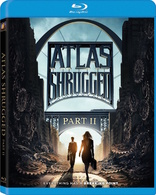Atlas Shrugged: Part II - The Strike Blu-ray Movie
HomeAtlas Shrugged: Part II - The Strike Blu-ray Movie 
20th Century Fox | 2012 | 112 min | Rated PG-13 | Feb 19, 2013Movie rating
5.2 | / 10 |
Blu-ray rating
| Users | 3.8 | |
| Reviewer | 2.0 | |
| Overall | 3.1 |
Overview
Atlas Shrugged: Part II - The Strike (2012)
With the global economy on the brink of collapse, Dagny Taggart discovers what might be the answer to a mounting energy crisis and races against the clock to prevent the motor of the World from being stopped for good.
Starring: Samantha Mathis, D.B. Sweeney, Michael Gross, Ray Wise, Jason BegheDirector: John Putch
| Drama | 100% |
Specifications
Video
Video codec: MPEG-4 AVC
Video resolution: 1080p
Aspect ratio: 1.78:1
Original aspect ratio: 1.78:1
Audio
English: DTS-HD Master Audio 5.1
Subtitles
English SDH, French, Spanish
Discs
50GB Blu-ray Disc
Single disc (1 BD)
Playback
Region free
Review
Rating summary
| Movie | 2.0 | |
| Video | 4.0 | |
| Audio | 4.0 | |
| Extras | 1.5 | |
| Overall | 2.0 |
Atlas Shrugged: Part II - The Strike Blu-ray Movie Review
Strikes out.
Reviewed by Casey Broadwater February 28, 2013In 2011, writing about Atlas Shrugged: Part I—the first in a planned trilogy based on objectivist Ayn Rand's massive 1957 novel—I expressed doubts that the second two parts would ever get made. Considering the story is about the value of free-market capitalism and well-used wealth, the first film is weirdly chintzy, a low-budget, sub-made-for-TV-quality slog with acting and a script to match the bargain- basement production values. It failed to turn a box-office profit, but producers Harmon Kaslow and John Aglialoro pressed on and somehow secured funding for the second film through a private debt sale. No longer able to afford or lock down the first movie's actors, they were forced to do a top-to-bottom recast for the sequel, which premiered on October 12th, 2012, just before the November election. This, of course, was no accident. The film's agenda—as Kaslow put it in an interview with conservative blogger Joe Miller—was to offer "an opportunity for swing voters to see what’s going on back in DC and help activate them to vote President Obama out of office.” That last part obviously didn't happen, and the film hasn't really succeeded by any other rubrics either.
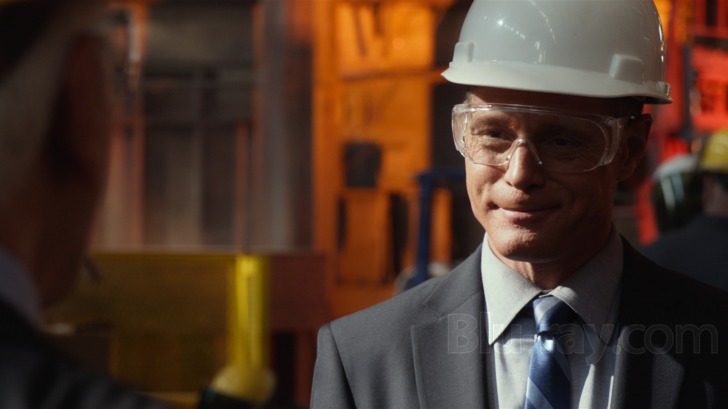
Henry Rearden
The film's brand of agit-prop is based on the argument that some government regulation will inevitably lead to a total federal suspension of corporate rights and civil liberties. There’s no in-between in this black-or-white economic fable. The story concerns tough-as-nails railroad tycoon Dagny Taggart (Samantha Mathis), who’s struggling to keep her business operational despite governmental intervention and the cowardice of her brother, James (Patrick Fabian), who cows to the Washington elite. Meanwhile, Dagny is also trying to solve the mystery of the question that’s on everyone’s tongues, “Who is John Galt?”
A shadowy figure whose very name has become a synonym for any situation without an obvious solution, Galt has been recruiting the country’s best and brightest minds—scientists and artists, engineers and entrepreneurs—to disappear from society without a trace, leaving their lives’ work behind. With this strike, Galt intends to “stop the motor of the world,” and prove his ideological point that the success of the nation is predicated on the unhindered freedom of its most productive citizens. The film gives primacy to the idea that businesses—and the bigwigs who run them—should be free to largely do as they please. At the center of this middle act of the trilogy is a cooperative corporate ménage à trois between Taggart Intercontinental, Rearden Metal—run by Dagny’s hard-working love interest, Henry Rearden (Jason Beghe)—and Ken Danagger’s coal company. Danagger (Arye Gross) provides coal to Rearden’s smelting plant, Rearden’s “miracle metal” is used to make Taggart’s tracks, and Taggart’s trains carry Danagger’s coal across the country. The three companies are in a perfect symbiotic sync. Until, that is, those pesky old bureaucrats in DC enact the “Fair Share” law, which limits who Rearden and Danagger can sell to, and for how much. The State Science Institute—“a state institute without the science,” as one character puts it—then tries to steal Rearden’s metal under eminent domain, claiming it’s for the “public good.” Somewhere in here, real-life Fox News commentator Sean Hannity shows up to proclaim Rearden a hero of industry for sticking it to the now- socialist Uncle Sam.
The story's subplots are many, and uninterestingly developed. Dagny discovers an engine, possibly invented by Galt himself, with the potential to revolutionize how energy is harvested. A South American industrialist (Esai Morales) gives a borderline incomprehensible speech on the importance of capital—"When money ceases to be the tool by which men deal with one another, then men become the tools of men"—and then blows up his own copper mines in an act of protest. A train collision tepidly raises the philosophical question of individual versus collective moral responsibility. As in Rand's novel, the characters are more stiff symbols than flesh-and-blood individuals—the government lackeys are named "Mr. Small" and "Mr. Mouch," a British spelling of mooch—and there's little in the film that resembles normal human interaction, partly because of the stilted acting, but mostly due to the clumsy script. Even the illicit romance between Taggart and Rearden is chastened and almost entirely subsumed by the film's overt political aims.
There's a difference between a film couched within a certain worldview and one that's simply agenda-driven, and Atlas Shrugged Part II certainly falls into the latter category, strategically misrepresenting the "other side" of what should be rational, balanced arguments about the function of government, the efficacy of a completely free market, and the nature of liberty. These are debates worth having, of course, as the concepts are fluid and always up for reinterpretation. The problem with Atlas Shrugged is that it's a dirty debater. It sets up straw men and throws out red herrings. It argues by repition. It poisons the well and appeals to fear and makes hasty generalizations. It just doesn't follow the etiquette of discourse.
Atlas Shrugged: Part II - The Strike Blu-ray Movie, Video Quality 
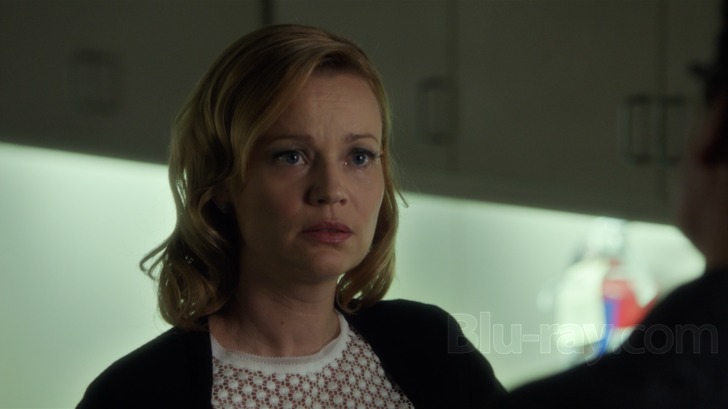
Like its predecessor, The Strike was shot digitally—albeit with the Arri Alexa, where the first film used the Red One camera system—and both movies have a similar made-on-the-cheap aesthetic, with flat, often overly-bright lighting, resulting in a picture that doesn't even look as good as most network TV dramas. And that's before we talk about the CGI, which looks like something out of a PS2-era video game cutscene. Once you get past the low-budget stylistic shock, however, there are no real technical complaints to raise about the film's 1080p/AVC- encoded Blu-ray presentation. The image does at least seem true to source, with no overt compression problems or meddling filtering, a la DNR and edge enhancement. Some shots seem conspicuously soft, but much of the time clarity is quite strong, with fine high definition detail easily visible in the areas where you notice it most— skin and clothing textures. Color is more than adequately dense, contrast is decent, and there are no unexplained fluctuations in hue, black levels, or skin tones. I suspect Atlas Shrugged: Part II looks as good here as it probably ever will.
Atlas Shrugged: Part II - The Strike Blu-ray Movie, Audio Quality 
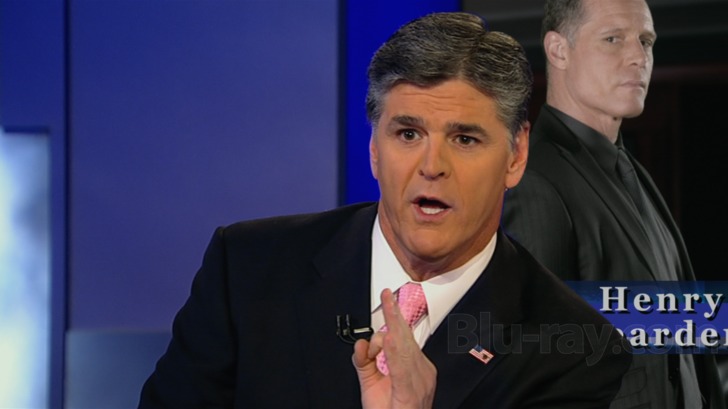
The film's lossless DTS-HD Master Audio 5.1 surround track blasts you out of the gate with the opening jet chase sequence, with the two planes roaring between channels, accompanied by a pounding orchestral score. If a little brash in the high-end, the mix is at least potent and immersive. There are a few other more action-heavy scenes throughout the film with a similar sense of punch—the smelter leak, the train crash, the reprise of the jet chase— but most of the movie is comprised of the actors reciting mouthy, exposition-laden dialogue, which is always clear, balanced at the top of the mix, and easy to understand. The track is a little less front-heavy than in the first film, and you'll often hear quiet ambience and acoustics in the rear channels, from outdoor sounds to the chatter and up-tempo jazz of a swanky bash. There are no clicks, hisses, or sudden dropouts, and the mix has a good sense of clarity throughout. The disc includes optional English SDH, Spanish, and French subtitles.
Atlas Shrugged: Part II - The Strike Blu-ray Movie, Special Features and Extras 

- Behind the Scenes of Atlas Shrugged II: The Strike (HD, 8:48): A quick on-set look at the shooting of the molten metal leak scene.
- Sean Hannity Extended Segment (HD: 3:13): The full Sean Hannity sequence.
- Deleted Scenes (HD, 14:43): An additional encounter between Dagney and Francisco, plus a few other low-key dialogue-driven scenes.
- Sneak Peek (HD): Includes trailers for Hitchcock and Broken City.
Atlas Shrugged: Part II - The Strike Blu-ray Movie, Overall Score and Recommendation 
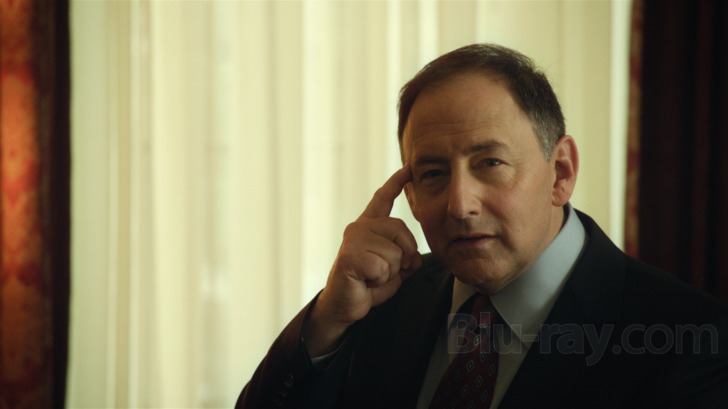
Like its predecessor, Atlas Shrugged Part II: The Strike will likely only appeal to those already convinced by its anti- regulatory, anti-government argument and willing to overlook its low-budget/creative shortcomings. Even those who agree with the film's premises and conclusions are likely to recognize that Atlas Shrugged isn't very successful as a movie—that it's poorly made, clunkily scripted, and almost robotic in its storytelling. 20th Century Fox's Blu-ray release is more than adequate, with strong audio/video quality and a few extras, but unless the first film is sitting proudly on your shelf, you'll probably want to skip this one.
Other editions
Atlas Shrugged: Part II - The Strike: Other Editions
Similar titles
Similar titles you might also like

Atlas Shrugged: Part I
2011

Atlas Shrugged Part III: Who Is John Galt?
2014

Anna Karenina
2012

Main Street
2010

The Lost City
2005

Rendition
2007

The Life of Emile Zola
Warner Archive Collection
1937

Woman in Gold
2015

Crossing Over
2009

The Mortal Storm
Warner Archive Collection
1940

Where Is Kyra?
Beat-up Little Seagull / Kyra
2017

The Normal Heart
2014

Norma Rae
35th Anniversary Edition
1979

Indiscretion of an American Wife
Terminal Station / Stazione Termini
1953

Houseboat
1958

Sunflower
I girasoli
1970

Saratoga
Warner Archive Collection
1937

The Man in the Gray Flannel Suit
1956

On Chesil Beach
2017

The Clock
Warner Archive Collection
1945
